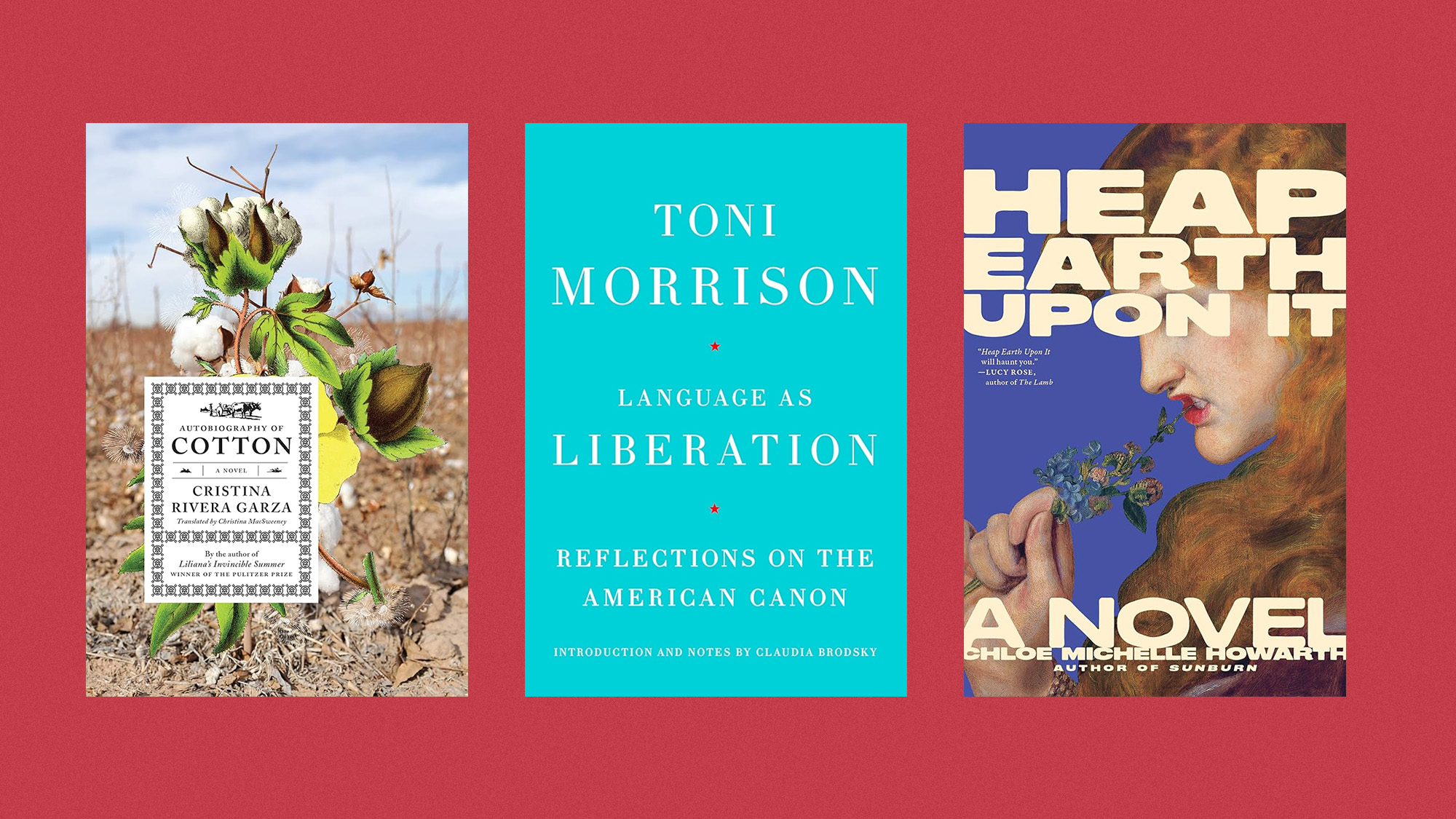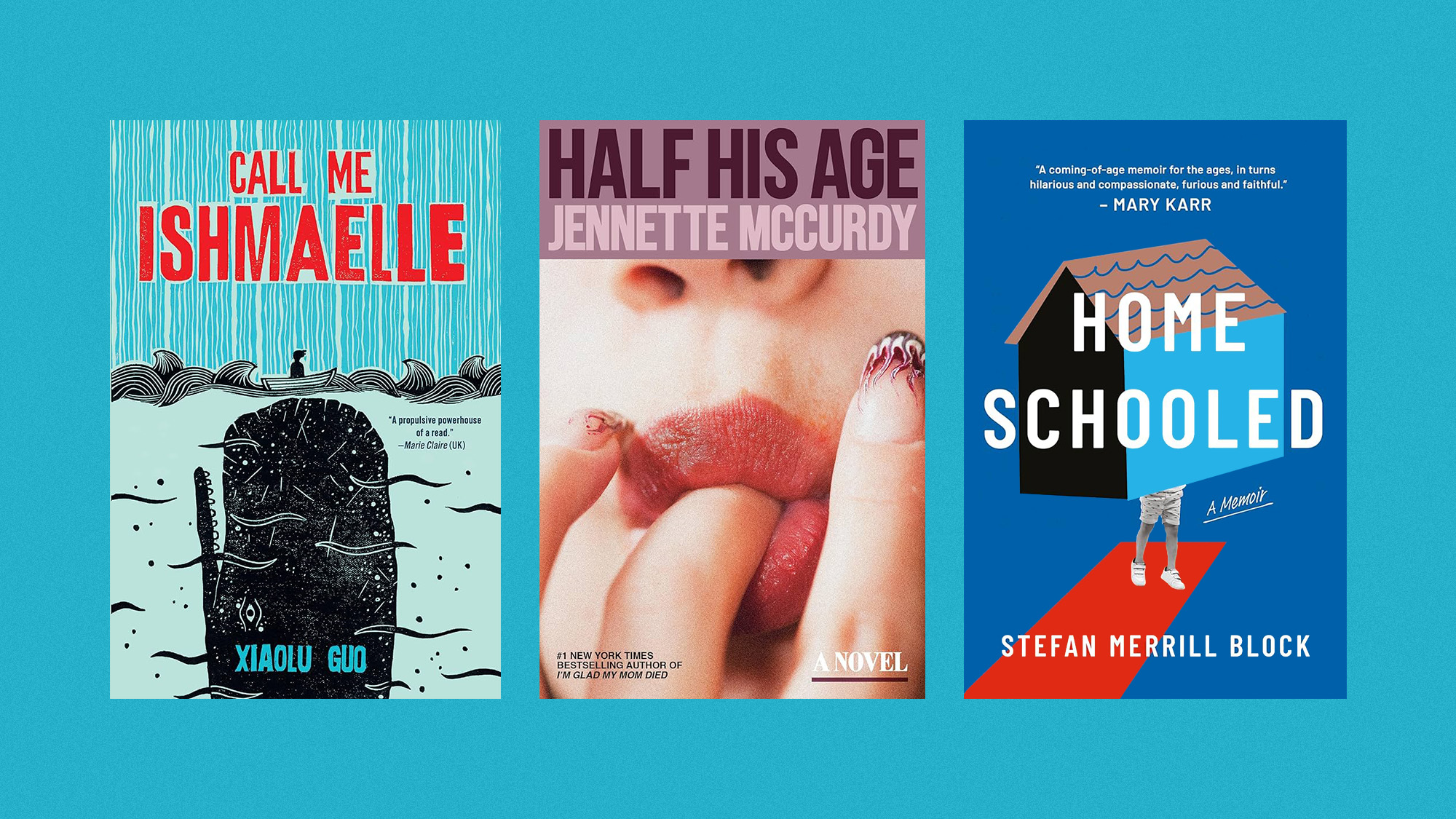The Pamela Anderson we didn't know
What critics are saying about the former Playboy Playmate's memoir


A free daily email with the biggest news stories of the day – and the best features from TheWeek.com
You are now subscribed
Your newsletter sign-up was successful
Considering how long Pamela Anderson has been in the public eye, her new memoir, Love, Pamela, released alongside a Netflix documentary, "might feel like overkill," Jessica Pressler says in The New York Times. But Anderson is a "natural storyteller," which shouldn't be surprising since "her ability to sustain a personal narrative is what's kept her in the public eye for going on four decades."
Anderson uses this skill in her book to set the record straight about her small-town upbringing, her rise to fame, and the scandals that rocked her career. In fact, "the most disappointing thing about Love, Pamela is that it doesn't come in a form that can be injected directly into your veins," Pressler says. There are free verse poems intertwined with the prose, which is "not as annoying as it sounds." With so much going on, "you need the extra line breaks to catch your breath."
Anderson recounts her life story, beginning with her childhood in Ladysmith, British Columbia. She describes the idyllic beauty of her childhood home "in lush detail," but "interspersed among these sun-dappled scenes are episodes of harrowing violence," Pressler continues at the Times. The author recalls retreating into her imagination to cope with her childhood traumas, including numerous incidences of sexual assault and her parents' tumultuous marriage. "It's how I learned to control my life," Anderson writes. "One fantasy after another." Anderson then takes readers on what Pressler describes as a "dazzling and occasionally dizzying ride" through the height of her fame, in which "vivid scenes of '80s and '90s decadence bump up against blind items about Russian oligarchs and brief but iconic celebrity cameos."
The Week
Escape your echo chamber. Get the facts behind the news, plus analysis from multiple perspectives.

Sign up for The Week's Free Newsletters
From our morning news briefing to a weekly Good News Newsletter, get the best of The Week delivered directly to your inbox.
From our morning news briefing to a weekly Good News Newsletter, get the best of The Week delivered directly to your inbox.
The memoir "reveals a side of the one-time Playboy Playmate and Baywatch star that feels unexpected," Ashley Fetters Maloy writes for The Washington Post. She reveals herself as a "voracious reader" who "cobbled together a personal philosophy from a curiously wide range of sources." Anderson proves to be "smarter and more thoughtful than the person many late-night hosts of the 1990s thought they were talking to." What her memoir does best, writes Fetters Maloy, is "lay bare the fact that the sexpot caricature of Anderson — the mythic, crushingly larger-than-life idea of her — obscured the charms of the real one." Anderson invites audiences "to laugh with her, not at her," Fetters Maloy says, and refuses to be a victim. Anderson does not linger on the stories of her traumatic experiences. Instead, Fetters Maloy writes, she devotes "the majority of Love, Pamela to joy."
"There is a thesis in her book," Sophie Gilbert writes for The Atlantic, "if an accidental one." Anderson narrates rather than analyzes her life experiences, and what emerges is "a devastating portrait of what it's like to be a person who — almost arbitrarily — drives men wild." The memoir illuminates how "Anderson exposed something feral and monstrous in people, long before she became a model, and for decades after."
This book is an "explosion of a deeply held cultural myth," Los Angeles Times critic Mary McNamara proclaims. Reading Anderson's point of view "illuminates not just her own story, but the often hideous cultural hypocrisy at work in all forms of the entertainment industry and the media surrounding it." Anderson dedicates very little space in her memoir to lingering on her traumatic experiences, unlike the controversial Hulu series Pam & Tommy, which dramatized the fallout after someone stole leaked a sexually explicit video of Anderson and her ex-husband Mötley Crüe drummer Tommy Lee. "Pamela Anderson has many interests," McNamra writes, "but dwelling on the past is not one of them." Instead of wallowing, Anderson focuses on the parts of her life by which she'd rather be defined, like her work on Broadway and as an animal activist. Her "minimalism" is a "rare quality worthy of admiration," even though "it leaves you with a limited understanding of who she is."
Anderson "displays a remarkable lack of anger," Kirkus Reviews says. Her memoir is full of crazy, juicy anecdotes, but her "good heart shines through." Anderson's "humility…never fails her" as she recounts her "kooky, messed-up, enviable, and often thrilling life."
A free daily email with the biggest news stories of the day – and the best features from TheWeek.com
Theara Coleman has worked as a staff writer at The Week since September 2022. She frequently writes about technology, education, literature and general news. She was previously a contributing writer and assistant editor at Honeysuckle Magazine, where she covered racial politics and cannabis industry news.
-
 Quiz of The Week: 14 – 20 February
Quiz of The Week: 14 – 20 FebruaryQuiz Have you been paying attention to The Week’s news?
-
 The Week Unwrapped: Do the Freemasons have too much sway in the police force?
The Week Unwrapped: Do the Freemasons have too much sway in the police force?Podcast Plus, what does the growing popularity of prediction markets mean for the future? And why are UK film and TV workers struggling?
-
 Properties of the week: pretty thatched cottages
Properties of the week: pretty thatched cottagesThe Week Recommends Featuring homes in West Sussex, Dorset and Suffolk
-
 The 8 best superhero movies of all time
The 8 best superhero movies of all timethe week recommends A genre that now dominates studio filmmaking once struggled to get anyone to take it seriously
-
 Josh D’Amaro: the theme park guru taking over Disney
Josh D’Amaro: the theme park guru taking over DisneyIn the Spotlight D’Amaro has worked for the Mouse House for 27 years
-
 February’s books feature new Toni Morrison, a sapphic love tale and a criticism of Mexican history
February’s books feature new Toni Morrison, a sapphic love tale and a criticism of Mexican historyThe Week Recommends This month’s new releases include ‘Autobiography of Cotton’ by Cristina Rivera Garza, ‘Language as Liberation’ by Toni Morrison and ‘Heap Earth Upon It’ by Chloe Michelle Howarth
-
 The best fan fiction that went mainstream
The best fan fiction that went mainstreamThe Week Recommends Fan fiction websites are a treasure trove of future darlings of publishing
-
 Golden Globes affirm ‘One Battle,’ boost ‘Hamnet’
Golden Globes affirm ‘One Battle,’ boost ‘Hamnet’Speed Read Comedian Nikki Glaser hosted the ceremony
-
 January’s books feature a revisioned classic, a homeschooler’s memoir and a provocative thriller dramedy
January’s books feature a revisioned classic, a homeschooler’s memoir and a provocative thriller dramedyThe Week Recommends This month’s new releases include ‘Call Me Ishmaelle’ by Xiaolu Guo, ‘Homeschooled: A Memoir’ by Stefan Merrill Block, ‘Anatomy of an Alibi’ by Ashley Elston and ‘Half His Age’ by Jennette McCurdy
-
 ‘One Battle After Another’ wins Critics Choice honors
‘One Battle After Another’ wins Critics Choice honorsSpeed Read Paul Thomas Anderson’s latest film, which stars Leonardo DiCaprio, won best picture at the 31st Critics Choice Awards
-
 The best alcohol-free alternatives for Dry January
The best alcohol-free alternatives for Dry JanuaryThe Week Recommends Whether emerging from a boozy Christmas, or seeking a change in 2026, here are some of the best non-alcoholic beers, wines and spirits to enjoy
